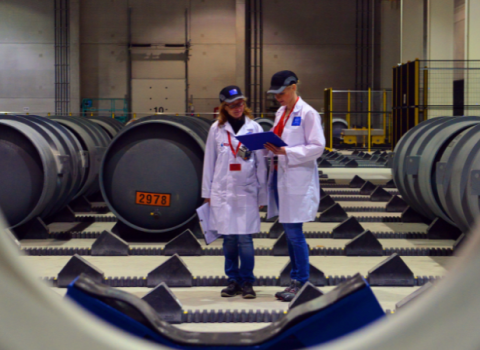Licensing opportunity
UK-basded Pursuit Dynamics plc has released data from trials of its PDX reactor technology in the production of bioethanol, showing significant improvements over existing processes.
Bioethanol is currently produced commercially from starchy materials such as cereal grains and sugar cane. While it is also possible to produce ethanol from cellulosic materials such as grasses, wood chips and other organic waste products, extraction is more complex. However, this process would allow the use of non-edible materials as feedstock, and it is currently the focus of research and development projects around the world.
Pursuit’s trials to date have focused on the potential application of its PDX reactor to increase yields and reduce process time and operating costs, in conventional starch to ethanol production, but the company also investigated the potential for the reactor to convert cellulosic material to ethanol.
Testing was carried out in 150 kg batches with around 2,500 samples taken in 48 trial sequences. External laboratories were used to validate results in a number of trials. The UK-based company achieved a repeatable, externally verified, average yield increase equivalent to 7 per cent per bushel of maize.
These yield improvements were achieved with no increase in energy usage above conventional production methods and there were also significant reductions in processing of time and the amount of enzyme required.
Testing the PDX reactor in converting cellulosic material to ethanol showed it was possible to convert over 80 percent of the total cellulosic content to fermentable sugars. Pursuit is now focusing on optimising the PDX technology in conventional starch to ethanol production and continues to investigate the opportunities to use cellulosic materials in the production of bioethanol.
Pursuit’s technology is based originally on a novel marine propulsion system. Since the company was set up in 2000 the technology has evolved into the reactor system, which is able to heat, mix and pump simultaneously. PDX is in use in a number of sectors, in particular food and beverage production.
John Heathcote, CEO, calls the results extremely encouraging. “We believe that the increase in yields in the starch to ethanol process created by the application of the PDX reactor system, if scalable, represent a very important development in the bioethanol industry.
“Similarly, the findings on the conversion of cellulosic material to ethanol are extremely promising and clearly demonstrate the potential application of the PDX technology in the production of bioethanol from cellulosic material.”
The company has completed preliminary designs for a full-scale pre-treatment system and is reviewing several commercial opportunities with ethanol companies.





 A unique international forum for public research organisations and companies to connect their external engagement with strategic interests around their R&D system.
A unique international forum for public research organisations and companies to connect their external engagement with strategic interests around their R&D system.